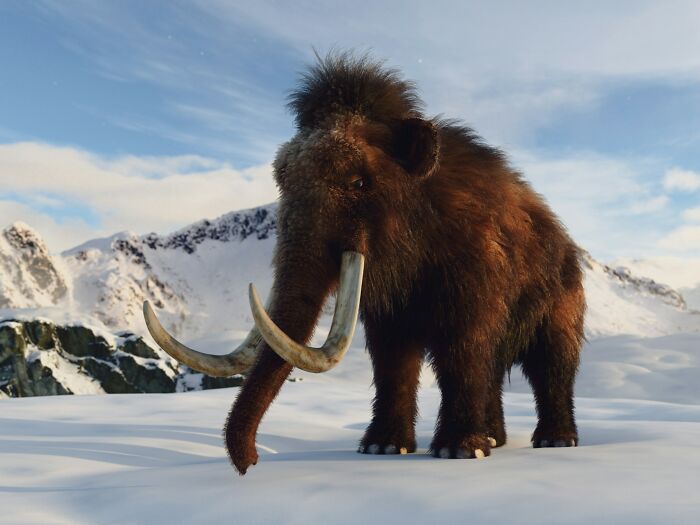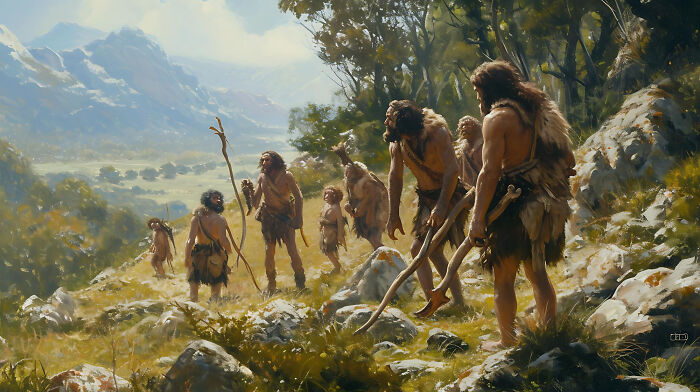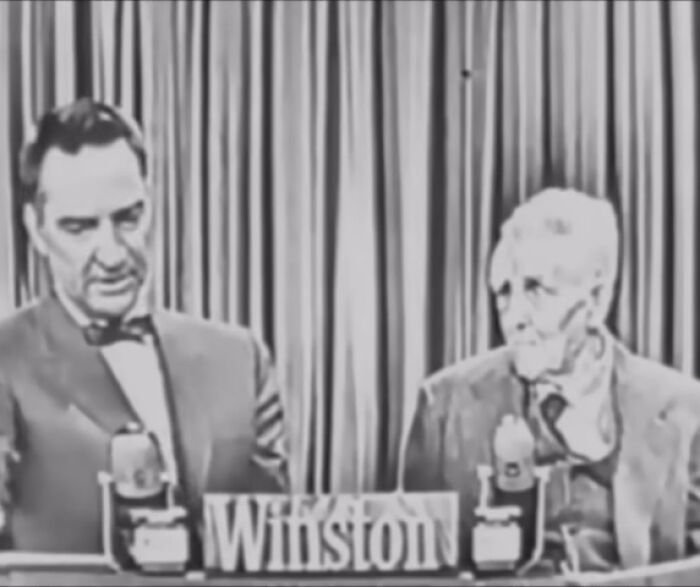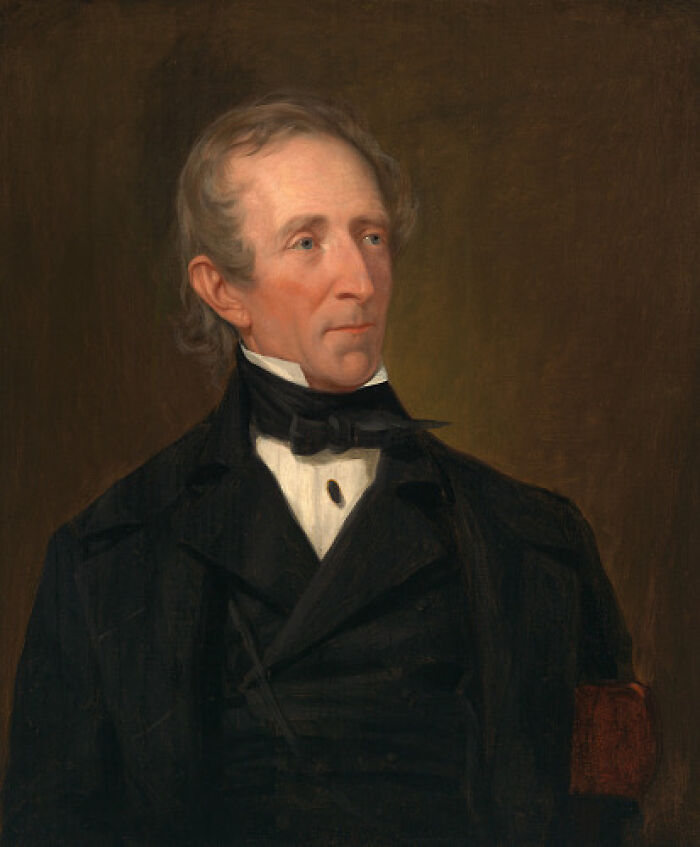Time essentially rules our daily life, and we often find ourselves having too much of it or too little. Nobody wants to waste these precious moments, but we often take for granted how much time we have to spend.
Although it might be easy to understand the concept of minutes and seconds in our day-to-day lives, on a bigger scale, things seem much more warped and weird. The examples in this list serve to show that time is way more complicated and flexible than we’d ever imagine.
More info: Reddit

 The Appalachian Mountains are so soft and rolling because they’re incredibly old. They’re so old that they were formed before creatures with endoskeletons existed.
The Appalachian Mountains are so soft and rolling because they’re incredibly old. They’re so old that they were formed before creatures with endoskeletons existed.
The Appalachians are older than **bones**.
 Last week I drank a beer from a brewery that is 65 years older than the USA (Smithwick’s) at a pub that was 125 years older than the USA (Bleeding Horse) in a city 788 years older than the USA (Dublin).
Last week I drank a beer from a brewery that is 65 years older than the USA (Smithwick’s) at a pub that was 125 years older than the USA (Bleeding Horse) in a city 788 years older than the USA (Dublin).
When you look at it from a scientific point of view, time is something that can be measured. That’s exactly why we have clocks and calendars in our home and office spaces. Being able to count the passing of minutes and hours is what keeps our society running smoothly and helps us stay accountable to the rules we’ve set.
The problem is that we’re so focused on how time passes in our own lives that we forget to see what’s happening on a bigger scale. The Sun and its planets condensed 4.55 billion years ago, and the galaxy that we’re a part of emerged around 13.8 billion years ago. It’s often hard for us to wrap our heads around how the passage of time can be that vast.
 The great pyramids are so f*****g old, the people we think of as “ancient Egyptians” were giving sight seeing tours of the *actually ancient* pyramids.
The great pyramids are so f*****g old, the people we think of as “ancient Egyptians” were giving sight seeing tours of the *actually ancient* pyramids.
 Mammoths were still around while the Great Pyramid at Giza was being built.
Mammoths were still around while the Great Pyramid at Giza was being built.
There were only 66 years between the first powered human flight and putting humans on the moon
If the entire history of the world was put into 24 hours, humans would begin to exist at 19 seconds to midnight.
1 million seconds is about 11 days. 1 billion seconds is about 33 years.
 The complaint tablet to Ea-nāṣir is a clay tablet that was sent to the ancient city-state Ur, written c. 1750 BC. The tablet, which measures 11.6 centimetres (4+9⁄16 in) high and 5.0 centimetres (1+15⁄16 in) wide, documents a transaction in which Ea-nāṣir,[a] a trader, allegedly sold sub-standard copper to a customer named Nanni. Nanni, dissatisfied with the quality, wrote a cuneiform complaint addressing the poor service and mistreatment of his servant.
The complaint tablet to Ea-nāṣir is a clay tablet that was sent to the ancient city-state Ur, written c. 1750 BC. The tablet, which measures 11.6 centimetres (4+9⁄16 in) high and 5.0 centimetres (1+15⁄16 in) wide, documents a transaction in which Ea-nāṣir,[a] a trader, allegedly sold sub-standard copper to a customer named Nanni. Nanni, dissatisfied with the quality, wrote a cuneiform complaint addressing the poor service and mistreatment of his servant.
It always brings joy to my heart that people really never change. 3,750 years ago this customer was sending it his time’s version of a complaint to management.
There’s another tablet from around the same time where a dude complains his work doesn’t recognize his value and doesn’t pay him enough and he complains about his bills.
Something about the absolutely regular actions we partake in everyday being common almost 4,000 years ago makes me smile.
Apart from staying on track with our work and personal life, clocks are also a tool for ensuring maximum productivity. A society that functions on the basis of seconds and minutes can provide the best output for its government bodies. That’s one of the biggest reasons why country and world clocks function so precisely.
Under capitalism, people need to be efficient and contribute to the economy, so if they are following time carefully, they will be the best assets. The problem is that human beings don’t always function well with such rigid structure, and need their day-to-day lives to be a bit more flexible in order to also have fun.
 I was born in 1981. JFK’s assassination (1963) was basically ancient history to me, and I grew up surrounded by all the conspiracy theories so assumed some of that must have been real.
I was born in 1981. JFK’s assassination (1963) was basically ancient history to me, and I grew up surrounded by all the conspiracy theories so assumed some of that must have been real.
9/11 happened in 2001. So to the same timeframe, there are kids born in 2019 who are now at school thinking and experiencing the same ancient history / conspiracy truth about the Twin Towers in the way I did about the Grassy Knoll.
Maybe a bit too personal, but some of us are old enough to relate.
There are some cases where people feel like time has slowed down and that’s usually when they’ve been in a life-altering event. Even if the minutes were passing as they normally would, folks often share that, during that moment, everything was happening to them in slow motion and was crystal clear.
According to research, the reason for this phenomenon is because the brain’s activity is slightly altered during sudden events. It might be recording everything that’s happening in greater detail, which gives the illusion that everything has slowed down. It’s only in instances like this that we realize how our much our minds can also shape the passage of time.
 Humans have been around for about 300,000 years. Up until 12,000 years ago we were just scattered hunter gatherer groups. We only have written text from about 3500BC forward. Therefore, 98% of human history can only be inferred from archeology and most of it can never be known with any certainty.
Humans have been around for about 300,000 years. Up until 12,000 years ago we were just scattered hunter gatherer groups. We only have written text from about 3500BC forward. Therefore, 98% of human history can only be inferred from archeology and most of it can never be known with any certainty.
 I like the one about Samuel J. Seymour. He was witness to Abraham Lincoln being assassinated. He was also on a televised game show where he recounted the incident. That just doesn’t jive with me but it’s true.
I like the one about Samuel J. Seymour. He was witness to Abraham Lincoln being assassinated. He was also on a televised game show where he recounted the incident. That just doesn’t jive with me but it’s true.
Even though this list is full of shocking facts about time, most of us feel like we’re running out of it. With every tick of the clock, it feels like we’re moving farther away from the past and closer to the unforeseeable future. This can probably feel scary to most people, as there always seems to be too much to do and insufficient time.
That’s why researchers say that we often need to take time to zoom out of our rigid schedules and realize that we can essentially time-travel mentally. By delving into our memories of the past, we can play out the moments we lived before, and use them to guide our future. Sometimes it might seem like time has passed us by, but the truth is, we just have to think and access it.
 Karl Marx published The Communist Manifesto in 1848.
Karl Marx published The Communist Manifesto in 1848.
The American Civil War started in 1861.
The samurai era of Japan ended in 1877.
It feels like those events should be in the opposite order.
Time is such a huge concept that we’d have to spend years delving into it to truly understand what it is all about. These examples are proof that there’s so much going on that we’re not keeping track of, but regardless of our interest, things still continue to happen, and the world moves on.
Do you have any interesting time facts that you’d like to share? We’d love to hear from you.
 The grandson of the 10th president of the United States died in 2025!
The grandson of the 10th president of the United States died in 2025!
When John Tyler (US 10th president) was born, George Washington was president, the first President of the US. There were 13 states.
John Tyler grew up and became a politician. John Tyler became US president from 1841-1845.
He had 15 children. His son, Lyon Gardiner Tyler Sr. Was born when John was 63 years old in 1853.
John Tyler’s son, Lyon Gardiner Tyler Sr., was 75 years old when his son Harrison Ruffin Tyler was born in 1928
Harrison Ruffin Tyler died this year in May 2025 at the age of 96.
From John Tyler’s birth to his grandson Harrison Ruffin Tyler’s death, 235 years passed!
So, the grandson of the tenth president of the US died in May, 2025!
 There was no “before” the big bang. It created space and time. I simply cannot get my head around this.
There was no “before” the big bang. It created space and time. I simply cannot get my head around this.
Also everything is moving away from everything in space. So, if time travel was indeed real, it would have to account for the fact that Earth would be in a different position relative to the epicenter of the big bang depending on how far forward or backwards in time you trav….oh no, I’ve gone cross-eyed.
 The stegosaurus was more ancient to a T Rex than a T Rex is to us.
The stegosaurus was more ancient to a T Rex than a T Rex is to us.
Stegosaurus lived about 150 million years ago while T Rex lived 66 million years ago, so Stegosaurus was around about 90 million years before the T Rex.
 You know how time moves more slowly when you’re under a stronger gravitational force? Someone on on the edge of a black hole goes through time slower than someone on earth.
You know how time moves more slowly when you’re under a stronger gravitational force? Someone on on the edge of a black hole goes through time slower than someone on earth.
So youd think that someone on Earth goes through time more slowly than someone on the ISS right? WRONG someone on the ISS experiences time dilation through velocity, and it just barely outweighs the time dilation of the gravitational force of the Earth. Someone on the ISS actually goes through time a fraction slower than someone on Earth. Times dilates with gravity *and* velocity 😵💫
And distances shrink the faster you’re going…
Wtf even is time or distance or the universe maaaaan.
 I’m in my early 60s (old but not *that* old):
I’m in my early 60s (old but not *that* old):
The time from World War II to my birth is less than the time from 9/11 to now.
 Oxford didn’t teach calculus for the first couple hundred years after it was founded, because Calculus had not been invented.
Oxford didn’t teach calculus for the first couple hundred years after it was founded, because Calculus had not been invented.
One state was around for both the Black Death, and Babe Ruth (the Ottomans, founded in 1299, and ended in 1918).
 Here’s a time related physics fact that blew my mind.
Here’s a time related physics fact that blew my mind.
Photons of light don’t experience the passage of time. Special relativity predicts that time slows down as a speeding object approaches the speed of light. At the speed of light itself, the speeding object does not experience the passage of time.
One of the weird implications of this is that for a photon of light that travels from a distant quasar billions of light-years away, all the way to earth, all those billions of years it was in transit pass in an instant. If you are sitting outside and are touched by the cosmic microwave background radiation, which traveled to earth from the time of the big bang, those photons experience the entire age of the universe (from our perspective, nearly 14 billion years ago) in a single instant. They go from being created to hitting whatever they hit, no matter how far away it is, from one moment to another as if no time had passed at all.
There is no reason your frame of reference, where all of the billions of years of history have passed, is any more important or correct or canonical than the frame of reference of that photon. The age of the universe therefore varies based on your frame of reference. It can be billions of years old as seen from earth, or it can be an instant old as viewed from the photon’s frame of reference. Or it can be anything in between as long as there is some frame of reference for it. (**EDIT:** Or it might be older! We are not stationary in the universe, and are moving through it at tremendous speed, and there might be some frame of reference for which the universe is much older.)
All of the history and prehistory of the earth, the rise and fall of nations and cultures, entire species coming into being and going extinct, and every chain of cause and effect that led to your parents meeting and your path through life that led to you standing outside on any particular night for the light from some distant quasar or galaxy to enter your eye as you glance up at the night sky was as good as pre-destined the moment that photon got emitted, and suddenly made contact with your retina, with no passage of time at all from its frame of reference.
Thinking about this made me realize that I have no concept of time.
 The human brain experiences and remembers time spans not absolutely but relatively, _very roughly_ as a fraction of its own age. A day to a toddler is like a week to a student or a month to a pensioner.
The human brain experiences and remembers time spans not absolutely but relatively, _very roughly_ as a fraction of its own age. A day to a toddler is like a week to a student or a month to a pensioner.
– 1000 days ≈ 3 years
– 1000 weeks ≈ 20 years
– 1000 months ≈ 80 years.
 President Biden’s birthday is closer in time to Lincoln’s second inauguration than it is to Biden’s own inauguration.
President Biden’s birthday is closer in time to Lincoln’s second inauguration than it is to Biden’s own inauguration.
 Earth is ~4,5 billion years old. The first life on earth might have appeared as early as 4,1 billion years ago. That would mean that life has existed for 90% of earth’s existence. Neat, right?
Earth is ~4,5 billion years old. The first life on earth might have appeared as early as 4,1 billion years ago. That would mean that life has existed for 90% of earth’s existence. Neat, right?
Well, multicellular life has only been around for 2,1 billion years – only 47% of the age of earth.
Vertebrates are even younger at 518 million years, or 11,5%.
Mammals? A bit unclear, but were probably around 200 million years ago. 4,4% the time that earth exists.
It goes on:
Great apes appeared 13 million years ago, 0,3%
Hominids 7 million years, 0,15%.
Finally, when did modern humans, homo sapiens, apoear? The highest estimate is 350 000 years ago. That’s 0,008% the age of earth.
Oh, but how old are the earliest signs of human civilization? Agriculture was developed during the Neolithic revolution, in about 10000 BCE. Keep in mind, that’s still abou 2,5 times as old as the pyramids of Giza mentioned elsewhere in this thread. 12000 years are about 3,4% of the age pf homo sapiens or 0,0003% of the age of earth. For comparison, if you assume a human gets around 80 years old, 0,00003% would account for 7575 seconds, or about 2 hours in a human’s life.
 Abraham Lincoln could have sent a fax to a samurai warlord.
Abraham Lincoln could have sent a fax to a samurai warlord.
Because all those things existed at the same time.
Did I blow your mind?? 😂😂.
Pluto’s orbit was first calculated shortly after that planet-c*m-“dwarf planet” was first discovered in 1930.
But no one alive (or ever born) will live to watch it complete one full trip around the Sun, as that takes 248 years.
The Phantom Menace (1999) came out closer in time to the original Star Wars (1977) than to the present day.
 It took roughly 3 million years for humans to go from stone to iron weapons, It took another 3 thousand to go from iron weapons to nuclear warheads.
It took roughly 3 million years for humans to go from stone to iron weapons, It took another 3 thousand to go from iron weapons to nuclear warheads.
Source link

